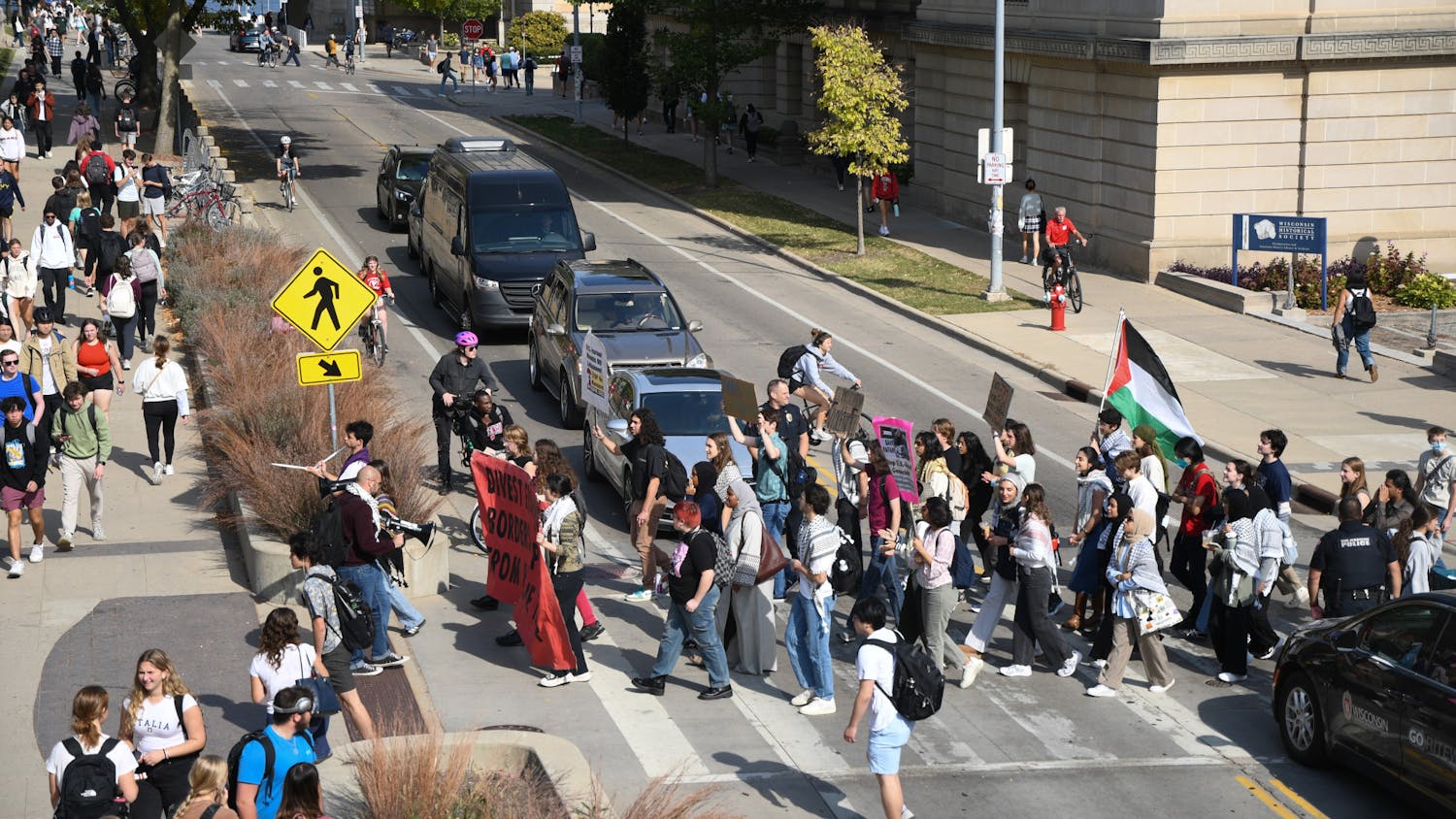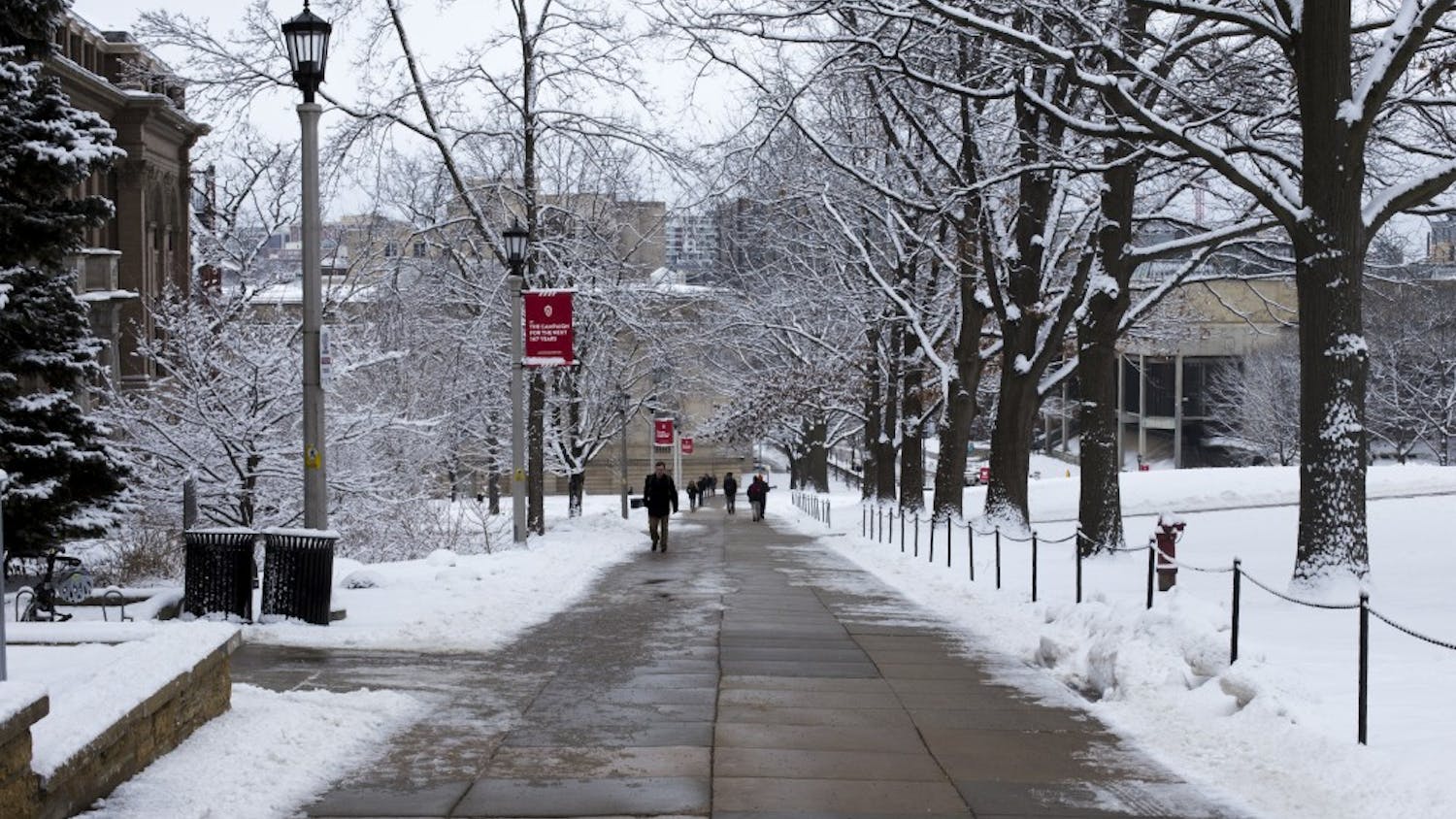President Donald Trump’s administration has issued a dizzying number of executive orders on colleges and universities since taking office, including threats to federal research and limitations on student visas, impacting universities around the country.
From limitations and revocations of student visas to federal grant cancellations, what threats are the University of Wisconsin-Madison facing, and how is the university responding?
Blocks and delays to federal funding
The Trump administration cancelled over $12 million in research grants at UW-Madison, including studies on how social media impacts the health and well-being of adolescents, research on preventative efforts against future coronavirus pandemics and a teacher preparation program designed to address the shortage of qualified special education teachers in Milwaukee Public Schools, according to a statement by the university.
Executive officials have also threatened and revoked federal funding from universities such as Harvard University and required institutions to comply with demands to restore their funding. Despite federal pressure, UW-Madison has spoken out against the Trump administration’s “unprecedented political interference” in the institution's proceedings.
UW-Madison is ranked sixth in the nation in university research expenditures, according to the National Science Foundation’s annual rankings, with nearly half of UW-Madison’s $1.7 billion in total research expenditures coming from federal awards. But after years of stagnant state funding and new challenges to federal funding, the future of that research looks more uncertain.
In April, UW-Madison Chancellor Jennifer Mnookin signed an open letter condemning the Trump administration’s action against public research funding, joining over 220 higher education leaders.
Additional setbacks at UW-Madison include delayed grant application reviews and attempts to cut payments for research from the National Institutes of Health (NIH), UW-Madison’s largest source of federal funding.
UW-Madison issued a public statement in April, warning these cuts could hinder ongoing research, limit student training opportunities and disrupt efforts that benefit the broader community.
“These terminations and delays would have devastating impacts on the university and the broader community,” the statement read. “Harming the university’s ability to pursue projects of importance to Americans; its ability to make critical, life-saving discoveries; and limiting opportunities to train students to enter the workforce.”
The Trump administration also gutted the U.S. Department of Education in March, firing most of the staff responsible for higher education policy and oversight.
On Thursday, a federal judge in Massachusetts blocked President Trump's executive order which aimed to dismantle the Department of Education, ordering officials to reinstate thousands of its employees.
Student aid
UW System President Jay Rothman appeared at a press conference in late May alongside other Wisconsin higher education leaders to denounce proposed federal legislation that would change eligibility for Pell Grants, a federal program making college more affordable for low and middle-income students.
"It makes no sense for the U.S. to narrow opportunities if our country wants to win the global war for talent,” he said. “I’m dumbfounded that cutting educational opportunities would even be considered when our economic vibrancy is at stake.”
Rothman added that among the 13 University of Wisconsin schools, there are nearly 31,600 Pell Grant recipients who depend on this financial aid to access “life-changing” educational opportunities.
Rothman said he and other higher education leaders are working with Wisconsin lawmakers and groups in Washington D.C. to prevent this provision from being passed.
“Education is a public good,” Rothman said. “It's not just for the individual student.”
Republicans on the State Legislature’s Joint Finance Committee also cut funding for a “last dollar” scholarship for low and middle-income UW System students that could have alleviated tuition for 5,000 students.
Visa reversals for international students
The University of Wisconsin-Madison is among 60 colleges and universities nationwide under federal investigation by the Department of Education’s Office for Civil Rights over antisemitism complaints stemming from pro-Palestine activism on campus.
The administration has ordered the cancellation of more than 1,500 visas across the country since January, including 27 international student visas and alumni visa employment extensions at UW-Madison. In late April, all 27 University of Wisconsin-Madison affiliates who previously had their visas terminated had them restored following a surprise reversal by the Trump Administration. Neither UW-Madison nor the affected students were given an explanation for the terminations or restorations.
On Thursday, Department of Homeland Security officials announced they would halt Harvard University's ability to enroll international students. While a federal court’s temporary restraining order has blocked the enforcement of this order for now, the threat still looms.
UW-Madison leadership fights back
UW-Madison continues to comply with all applicable federal regulations related to international students studying at the university, according to university spokesman John Lucas, and has communicated their support for international students.
“International students and alumni are a vital part of UW–Madison,” Mnookin wrote in an end-of-semester letter to faculty and staff. “They contribute to every corner of this university and well beyond. They enrich our community in tremendous ways, and these recent record terminations are deeply concerning.”
Mnookin also voiced her dedication to fighting directives limiting research at the university and described higher education as a “big part of what makes this country great.”
The university has also filed numerous lawsuits against the federal government and said it will continue to take legal action against terminations and federal directives.






